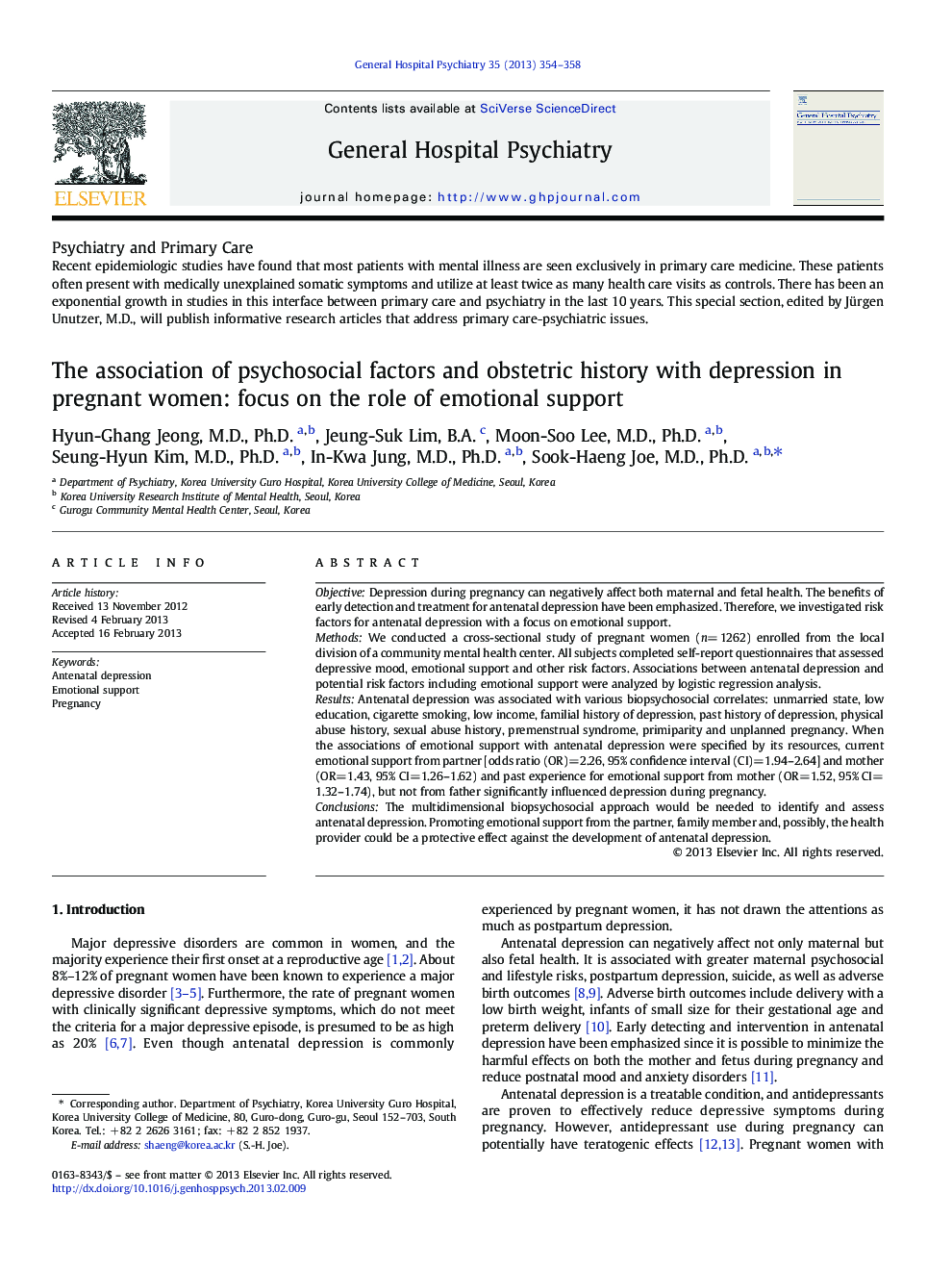| Article ID | Journal | Published Year | Pages | File Type |
|---|---|---|---|---|
| 6082213 | General Hospital Psychiatry | 2013 | 5 Pages |
ObjectiveDepression during pregnancy can negatively affect both maternal and fetal health. The benefits of early detection and treatment for antenatal depression have been emphasized. Therefore, we investigated risk factors for antenatal depression with a focus on emotional support.MethodsWe conducted a cross-sectional study of pregnant women (n=Â 1262) enrolled from the local division of a community mental health center. All subjects completed self-report questionnaires that assessed depressive mood, emotional support and other risk factors. Associations between antenatal depression and potential risk factors including emotional support were analyzed by logistic regression analysis.ResultsAntenatal depression was associated with various biopsychosocial correlates: unmarried state, low education, cigarette smoking, low income, familial history of depression, past history of depression, physical abuse history, sexual abuse history, premenstrual syndrome, primiparity and unplanned pregnancy. When the associations of emotional support with antenatal depression were specified by its resources, current emotional support from partner [odds ratio (OR)=2.26, 95% confidence interval (CI)=1.94-2.64] and mother (OR=1.43, 95% CI=1.26-1.62) and past experience for emotional support from mother (OR=1.52, 95% CI=1.32-1.74), but not from father significantly influenced depression during pregnancy.ConclusionsThe multidimensional biopsychosocial approach would be needed to identify and assess antenatal depression. Promoting emotional support from the partner, family member and, possibly, the health provider could be a protective effect against the development of antenatal depression.
